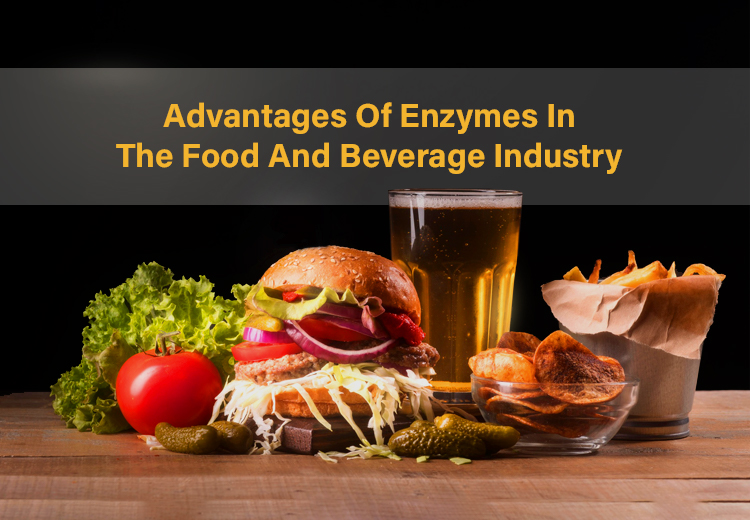
Supplying the needs of a growing population requires the food and beverage industry. Many commonly available packaged foods, including dairy products, drinks, meat, poultry, and seafood, are offered by this industry. Enzymes are usually employed to simplify the packing process for commercial use and sustain the long life of products which helps to extend the shelf life of these items.
Enzymes are now widely used in the food and drink industry. They help make things like cooking and processing food easier and more efficient. Lipases and proteases are examples of food enzymes that lower waste from raw materials and contribute to a decrease in greenhouse gas emissions.
In the food and beverage sector, enzymes also generate flexible, high-performing solutions that ensure premium, cost-effective goods that consistently meet consumer demands.
Together, we will explore the function of enzymes in the food and beverage sector as well as their modern benefits.
Introduction to Enzymes in the Food and Beverage Industry
In the modern world of fast food and beverage production, enzymes are extremely crucial. They turn raw stuff into yummy things we can eat right away. Enzymes help a lot in making more food, doing work faster, and being good to the Earth. These enzymes are crucial for food processing due to their capacity to increase yield, productivity, and sustainability, this article talks about why enzymes are great for making food and drinks and how they help the beverage industry.
Advantages of Enzymes in the Food and Beverage Industry
1. Improved Efficiency in Food Processing:
Enzymes are helpers that speed up chemical reactions. In food manufacturing, they make things go faster, so companies can make food and drinks quicker. This helps food and beverage companies be more efficient and make things better.
2. Enhanced Flavor and Texture:
Enzymes play a fascinating role in food products. The protease enzymes delicately soften the meat and amylases influences the texture of baked goods. It’s a captivating aspect of food science that adds flavour and texture to our favourite dishes.
3. Increased Shelf Life:
Enzymes are important in keeping food and preventing wastage by influencing chemical reactions. They work to balance the growth of microorganisms to enhance the product’s stability and shelf life.
4. Cost-Effective Production:
Using enzymes in food processing can reduce the use of some additives and helps in the process. In addition to increasing production efficiency, this also satisfies consumer demand for more naturally sourced food.
5. Sustainable Food Manufacturing:
Enzymes play a role in making the food industry more sustainable. They work well under gentle conditions, cutting down the need for energy-demanding processes. This aligns with the overall aim of beverage manufacturing in an environmentally friendly way.
6. Precision in Processing:
Enzymes show specificity in how they work, giving manufacturers more control over the end product. This precision is especially helpful in maintaining consistent quality and meeting the specific taste preferences that consumers expect.
Enzymes Used In the Food and Beverage Industry
A variety of enzymes are employed to both prevent and improve product taste. Various products are produced using different enzymes.
Cellulase
The enzyme cellulase is essential to the food and beverage industry. Its function is to break down cellulose and produce glucose from it. This enzyme enhances the extraction and clarity of fruit juices and wine during processing.
Lipase
When it comes to the benefits of enzymes, lipase in particular helps to stabilize dough fermentation, which produces high-quality bread. Noodles made with it also have a non-stick quality when boiling.
Protease
In order to enhance viscoelasticity and prolong the shelf life of products, the food and beverage sector employs proteases. Additionally, it improves the baked goods’ baking quality.
Conclusion
As a result, enzymes have transformed the development, processing, and preservation of products, making them extremely significant assets in the food and beverage industry. Enzymes provide several and extensive advantages of enzymes in food processing, ranging from increasing productivity to supporting sustainability. Strategic enzyme integration is a critical component of success in the fiercely competitive and constantly growing food manufacturing companies, as they navigate the shifting terrain of customer demands and regulatory regulations. If you’re a beverage manufacturing company and want the best quality food enzymes then connect with us, as we at Ultreze Enzymes Pvt Ltd leading enzyme manufacturer, supplier and exporter in India due to our best quality and the best price.


